- Home
- Georgette Heyer
Acting on Impulse Page 11
Acting on Impulse Read online
Page 11
“And you think this is a proper way to treat me?”
“It’s not a very usual way,” Kenneth answered. “You must see that it’s your own fault.”
“My fault! How dare you! I suppose that bohemian put you up to it?”
“Which bohemian?” asked Kenneth sweetly.
“That damned girl! That Fenton girl!”
“Oh, Ursula! No, she doesn’t know anything about it. I don’t know that she’d altogether approve,” he added reflectively.
The general took him by the arm.
“Listen! You can do what you damn well like, but I won’t give my consent. Understand me?”
“I don’t think you quite understand, sir,” said Kenneth. “I shall have to keep you here till you do consent. I don’t mind much myself, because I rather like this place, but I should think you’d find it a bit dull.”
His father smiled grimly.
“My good youth, how long do you suppose it will be before Lorton discovers my absence?”
Lorton was his valet. Kenneth smiled, too.
“Well sir, I told Lorton that you and I were running down into the country for a few days. So I don’t think he’ll make any trouble.”
“You told L—” Words failed the general. He grew purple in his rage, and he strutted round the room shaking his fists and spluttering. When his fury had spent itself, he turned to Kenneth. “You’ll be sorry for this. I’d stay here for months rather than give in to you!”
“There—there isn’t anything to drink, ’cept water,” said Kenneth apologetically. “And there aren’t any cigars.”
The flood of invective with which the general greeted this piece of information left him weak and trembling. It had no visible effect on his son.
III.
THE general opened his eyes to a new day. He had not slept well. It seemed to him that the mattress on which he lay had been stuffed with potatoes. He gazed malevolently at the sun and thought over his unenviable plight. For some time his mind dwelt on a diet similar to last night’s supper. He shuddered. There had been a packet of soup, diluted in water and boiled over a smoky fire. Kenneth had done the cooking, while he had sat apart in frozen silence. Following that unspeakable soup, had come tinned salmon and bully-beef, washed down by water. The general was not the man to deny that water had its uses; but he refused to countenance it as a drink. Kenneth had offered to brew some cocoa with the aid of tinned milk, but the general had refused the offer curtly. He had no opinion of his son’s culinary skill. And he was a notorious bon-vivant, particular to the point of faddiness over his meals. To make matters worse, his cigar-case was empty. He had gone early to bed, ignoring all Kenneth’s attempts at conversation.
Presently Kenneth tapped on the door.
“I say, sir, I’ve got your shaving water here, and I’ve got every kettle and saucepan on for your bath. ’Twon’t be long. Can I come in?” He awaited no permission but entered, bearing a jug. This he set down on the rickety washstand. “Topping day, pater!” He dragged a tin bath from under the bed, and eyed it dubiously. “’Fraid it isn’t frightfully large, sir. I’ll bring the water up.”
He disappeared, and the general crawled out of bed. He was in the middle of shaving when Kenneth came back, bearing a long-handled saucepan, which he emptied into the bath.
“Have to pump up every drop of water,” he informed his father. “Awful fag!”
He went out again, returning almost at once with two large kettles. He then departed, leaving the general to his ablutions.
Breakfast consisted of porridge, slightly burnt, and bacon. The coffee was a little muddy; but, then, as Kenneth remarked, he wasn’t used to cooking. Not until the meal was over did the general vouchsafe a word, then he frowned majestically at his son and growled:
“Well? Have you come to your senses?”
Kenneth took a large bite out of a slice of bread and marmalade. He said nothing.
“You will take me back to town today?”
“Yes, sir. On one condition.”
The general’s lips tightened.
“No!”
“Then I’m awfully sorry, sir, but—”
The general stumped out into the “garden”. What he saw appalled him. A tall fence ran round the house, and inside it, some five feet wide, was a veritable maze of barbed-wire entanglement. The gate was stout and tall and on the top Kenneth had arranged more barbed wire and some broken glass.
During the day the general made two abortive attempts to escape. On both occasions he tore his trousers and became so hopelessly mixed up in wire which scratched him if he moved a finger that he had to roar for his son to come and rescue him. Kenneth came, begging his father not to do it again as he would certainly hurt himself badly. The general wasted half an hour in swearing at him, then he subsided and went to lie down. No word passed his lips during the rest of the day.
The next day found the general in a mood of black depression. As far as he could see, Kenneth was thoroughly enjoying the simple life. He showed no signs of boredom, he was unfailingly thoughtful and polite towards his father. He did all the work of the cottage, and sang as he worked. With a little encouragement he would have conversed cheerfully with the general, but he did not receive any encouragement. He drove out to buy milk and eggs in the morning, punctiliously locking the gate behind him. It was during his absence that the general tried to escape. After lunch the general descended to coaxing, and found it useless. He snarled at his son for twenty minutes, and then went to pace up and down the clay-field outside. He returned to the attack at dinner, and smashed two cups and a plate. As they had only two cups, they had to drink out of glasses at breakfast on the following day. Tea in a glass broke the general. He made one more attempt to reduce his son to a sense of law and order, and failing, gave in—blasphemously.
Kenneth was overjoyed. He tried to wring his father’s hand and the general danced with rage. So Kenneth, realising that his father was hardly in the mood to forgive and forget, restrained himself.
“You’ll come at once to Ursula’s flat and tell her yourself?” he asked anxiously.
The general swallowed hard.
“Yes!” he swallowed again. “And I wish her joy of you!”
“We’ll be off in half-a-shake!” cried Kenneth. “It’s most awfully good of you, sir! But when you see her—”
The general made an indescribable noise, and Kenneth thought it wise to withdraw. He drove his car down to the village and sent an urgent telegram.
IV.
URSULA received the telegram just before one o’clock. She read it calmly, twice. She was a little surprised, but not much so. The telegram was evidently written in great excitement. It might even be termed puzzling.
“For the love of Mike get in whisky and Corona cigars for tea!—KENNETH.”
Ursula wasted no time searching for a hidden meaning. She knew Kenneth. She put on her hat and coat and sallied forth in search of whisky. Luckily, it was opening hour, and she had no difficulty in buying it. She then bought the requested cigars, and went home. She supposed that Kenneth would explain when he arrived. Obviously he was coming to tea. So she changed her frock, made the studio look very cosy, and put another log of wood on the fire.
At four o’clock her front-door bell rang violently. She went to open the door.
“Hallo, Ken! Where’ve you been all—”
She broke off, staring at the general. “Who—who—?”
“My father, Miss Fenton,” announced Kenneth proudly.
“W–won’t you—come in?” asked the astonished Ursula.
Her eyes wandered to a jagged rent in the general’s trousers, and widened.
Kenneth let his father into the studio. The general glared at Ursula.
“Are you Ursula Fenton?” he demanded.
Ursula nodded.
“Then you can marry my son!” snapped the general. “And I wish you joy of him!”
It seemed to Ursula that all was not as it should be
between the general and his son. She looked from one to the other inquiringly.
“Bumptious puppy! Insufferable scoundrel!”
Ursula decided that she must take a hand. She pushed Kenneth before her into the kitchen.
“Wait there till I call you,” she told him. “And keep quiet. What on earth have you been doing?”
“Kidnapped him,” whispered Kenneth. “Got the cigars and the whisky?”
“Yes—no—go in!”
“I’m not going to leave you to tackle—”
“You’ll do what you’re told,” said Ursula severely, and shut the door on him.
She went back to the general, who was fuming before the fire, and laid a gentle hand on his arm.
“I don’t know what Kenneth’s done,” she said, “but I’m sure it’s something abominable. Please take off your coat and sit down.”
The general allowed her to extricate him from his overcoat. He sat down with a sigh of something approaching content.
“Abominable? I should say so! Scandalous! Iniquitous!”
“How dreadful!” Ursula was all sympathy. “Won’t you smoke?”
The general bounced up, and saw the extended box of cigars. He snatched one unceremoniously, and inspected it. Some of the blackness went out of his look. Ursula went in search of a glass and some soda-water. When she returned, she found the general smoking blissfully. By the time she had supplied him with a whisky-and-soda he was able to tell her the whole story.
To her everlasting credit, Ursula did not laugh. She was properly shocked and indignant. And the more indignant she became, the more lenient became the general. The cigar was taking effect. When he had embarked on his second drink, he began to look on the humorous side of the affair.
“Young devil!” he said. “Carrying me off like that! Brazen impudence!” He chuckled a little.
“I think it was perfectly disgraceful!” said Ursula.
“So it was,” he agreed. “But he’s mad, you know. Barbed-wire entanglements—young Bolshevik!”
“Well, it’s awfully decent of you to be so nice about it,” said Ursula.
“Made me come here to tell you myself, damn him!”
“But I am so glad you did come,” said Ursula. “I’ve so wanted to meet you.”
“Where is he?” he growled presently.
“In the kitchen,” answered Ursula. “I told him to stay there.”
A gleam came into the general’s eye.
“Told him, eh? And he obeyed you?”
“Of course,” said Ursula. “He’s nothing but a huge, mad baby!”
“Think you can manage him?”
Ursula dimpled.
“Yes, and you too, general.”
“Minx!” But he looked at her with admiration. “Well, you can marry him, but I won’t let you take him away. Understand that!”
Ursula patted his hand.
“I don’t want to take him away. I want to come and take care of you as well. It seems to me that you both want a woman in charge of you. Of all the mad people—well!”
The general chuckled again. Ursula smiled at him.
“May he come in and apologise, general?”
The general shrugged his shoulders.
“If he wants to.”
Ursula went to release her captive. When she got into the kitchen she was seized and hugged.
“You idiot!” she murmured, laughing. “Come along in and apologise.”
The general accepted his son’s apology in haughty silence, but over tea he unbent. But it was not until he finally took his leave that he showed Kenneth that he was forgiven. He kissed Ursula good-bye and turned to look at Kenneth.
“If you hadn’t got your mother’s eyes,” he said, “I’d— Well, you have got ’em. Don’t be late for dinner.”
With that he stumped out, and Kenneth conducted him to the lift. When Kenneth came back, Ursula looked him over from head to foot. He stood meekly before her.
“Well?” said Ursula, with would-be sternness.
“It was just a sudden impulse,” Kenneth excused himself. “And—and it did do the trick, darling, didn’t it?”
“Do you always act on impulse?” inquired Ursula.
“N—yes. Usually.”
“I shall have a busy time,” she said. “Two mad, wild—”
“I say, Ursula, I want to kiss you!” he interrupted, and swept her into his arms.
“Is this a sudden impulse?” asked Ursula from his shoulder.
“No, by Jove!” cried Kenneth. “It’s a never-ending impulse!”
THE END
READING “ACTING ON IMPULSE”
It never ceases to amaze me, the passivity of the Heyerian women in these contemporary tales of hers. Because, sure, our Ursula is presented to us here as an “independent” woman, who makes a living on her own and is accountable to no one, but ask her to marry an acquaintance of hers who will – apparently – take her away from all this artistic toil and make a lady who lunches of her, and she’s apparently ready to agree almost immediately, with no intimation of any particular fondness for the gentleman on her part, before or since the proposal.
To me, that makes sense in the Georgians and the Regencies. But in the 1920s? Really? With all the flappers and the women wearing trousers and the suffragettes?
Really?
Now, don’t get me wrong, I love this story. It is funny, it is charming, and both the competent Ursula and her impulsive fiancé, the dashing and charismatic Kenneth (oh, these names!), are likeable and attractive souls for whom shared happiness is all but certain. But for the two of them to go from “pals” to “let’s get married!” in the space of a paragraph, without ever going on so much as a date or discussing things like whether they want kids, or where they’re going to live, or even just making out, is wholly bizarre – even in the 1920s, surely. I mean, I’ve read Elinor Glyn; those people were totally doing it.
But not before marriage, in Heyer Land. As far as we’re aware, Kenneth barely holds Ursula’s hand before deciding she’s the one for him… forever. What? No. That does not make sense.
It’s adorable as hell, though.
And, oh, the poor pater. Obviously, his snobbishness regarding Ursula is not to be borne, but how dreadful, to find oneself shut up in a ramshackle house – purchased outright by Kenneth, if you please, just as a bolthole for a couple of days, because of course one could buy a house on a whim, once upon a time; galling, isn’t it? – and deprived of the comforts of one’s declining years, all so your son can get married to his chance-met acquaintance. It’s disgraceful.
‘Pater,’ by the way, has to be one of the most time-specific endearments for a parent of all time. If you read a book in which the characters refer to anyone as “mater” and ‘pater,’ you are for sure reading a book that is set among the English upper echelons sometime around the World Wars. Giving the words an indefinite article – the mater and the pater – just solidifies the speaker’s place in society, and also in time.
In the decades since, “mater” and “pater” have rightfully fallen by the wayside, and while I actively decry the loss of some words from our shared vocabulary – one day I will see “zounds!” brought back into vogue – those frightfully twee appellations can stay gone for good.
So, poor ‘pater’ is starved into (whiskeyed and cigared into?) submission, and then Kenneth takes him to see Ursula to deliver the good news of the tortured man’s forced approval of their ill-considered union, and then you really see the genius of Heyer at work—as well as the genius of Ursula. Earlier in the story, when Kenneth reports on his father’s adamance against their marriage, she suggests she might go see the elder gentleman, and perhaps smooth the way. Kenneth advises against it, and Ursula accedes to his counsel, but it is evident that she is pretty sure she can turn the old boy around, if only she gets the chance to work her magic. Now, obviously the liberal doses of alcohol and tobacco help her cause, but one gets the impression that Ursula could have wra
pped him around her little finger even without those inducements, because of course she can – she is pretty, she is smart, she is sympathetic and she knows how to manage him. General Mount is essentially Matthew Penicuik being turned up sweet by Miss Fishguard in Cotillion, or a dozen other cantankerous older gentleman who want nothing but an appearance of obedience and a kindly ear to make them believe they are in control. But Ursula emphatically has the upper hand over him, and Kenneth besides.
And we know all of this, from mere scraps of dialogue and inner-monologue.
Georgette Heyer really was astonishingly good at this.
And with “Acting on Impulse” she found her contemporary short story groove.
“WHOSE FAULT WAS IT?”
INTRODUCTION
Appearing in The Happy Mag in August 1923, Heyer’s last for that publication, “Whose Fault Was It?” is Heyer’s first domestic romance – a tale of conflict and love between a husband and wife. It is a sprightly story with some excellent and at times realistic dialogue, as George and Diana argue back and forth over the teacups. Heyer was still living at home in 1923, but since her own parents had been married for over twenty years, it seems likely that she would have witnessed or overheard marital disputes from time to time. While her father, George, was often described as charming and charismatic, her mother, Sylvia, was known to suffer from mood swings—and every marriage has its trials.
George and Diana, however, are only a year married, and though not long out of their honeymoon phase, are already becoming increasingly frustrated with each other. Heyer opens her story with a fiery interchange, in which Diana is surprisingly outspoken. There is no sign of the downtrodden wife or little woman here, even though her husband is self-absorbed and autocratic. Diana has been brought to live in “a beautiful Tudor house about twenty miles from London” where she has “her car and her horses and a large allowance.” There seems little to complain of but Heyer understood relationships and she finds the weakness and uses it to powerful effect.

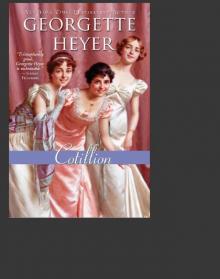 Cotillion
Cotillion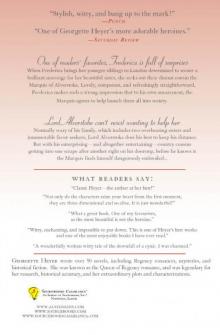 Frederica
Frederica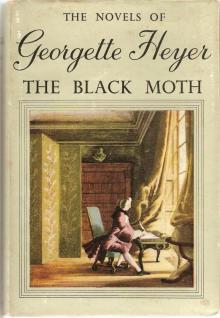 The Black Moth: A Romance of the XVIIIth Century
The Black Moth: A Romance of the XVIIIth Century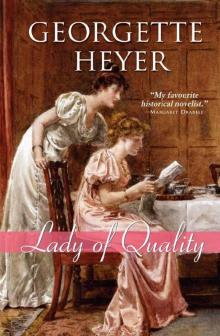 Lady of Quality
Lady of Quality Snowdrift and Other Stories
Snowdrift and Other Stories An Infamous Army
An Infamous Army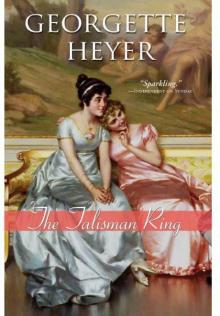 The Talisman Ring
The Talisman Ring Venetia
Venetia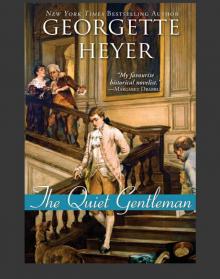 The Quiet Gentleman
The Quiet Gentleman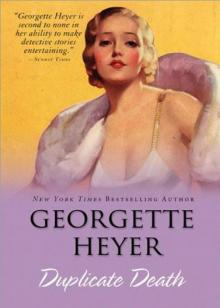 Duplicate Death
Duplicate Death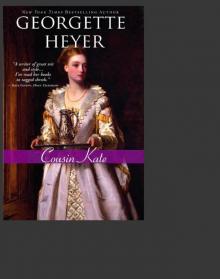 Cousin Kate
Cousin Kate Black Sheep
Black Sheep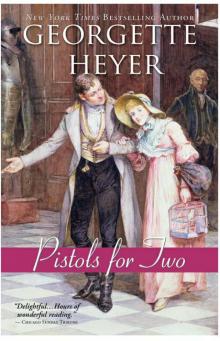 Pistols for Two
Pistols for Two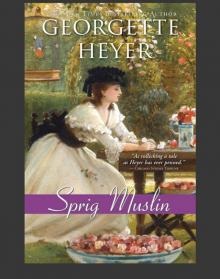 Sprig Muslin
Sprig Muslin No Wind of Blame
No Wind of Blame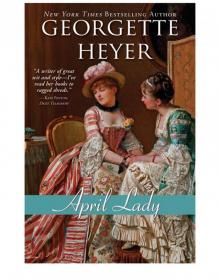 April Lady
April Lady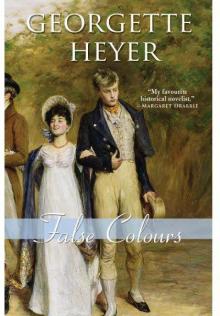 False Colours
False Colours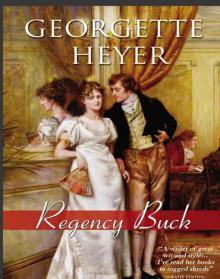 Regency Buck
Regency Buck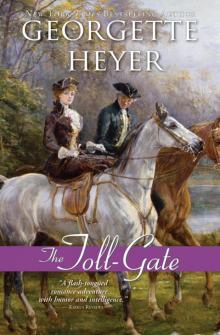 The Toll-Gate
The Toll-Gate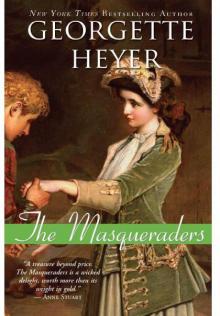 The Masqueraders
The Masqueraders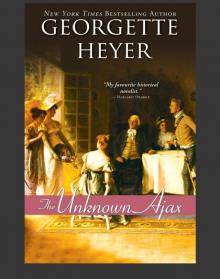 The Unknown Ajax
The Unknown Ajax The Grand Sophy
The Grand Sophy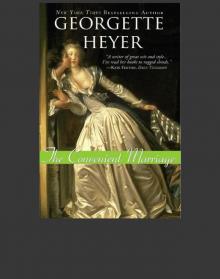 The Convenient Marriage
The Convenient Marriage Faro's Daughter
Faro's Daughter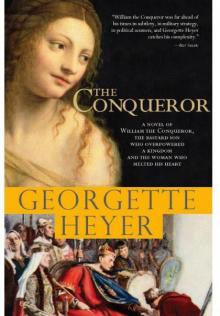 The Conqueror
The Conqueror The Foundling
The Foundling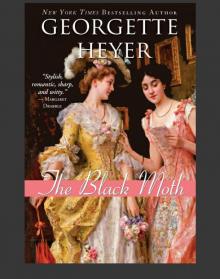 The Black Moth
The Black Moth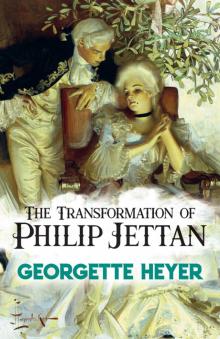 The Transformation of Philip Jettan
The Transformation of Philip Jettan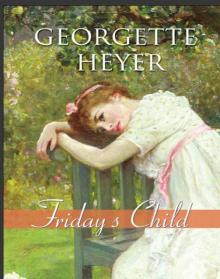 Friday's Child
Friday's Child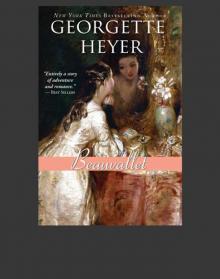 Beauvallet
Beauvallet They Found Him Dead
They Found Him Dead Charity Girl
Charity Girl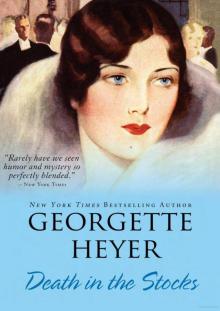 Death in the Stocks: Merely Murder
Death in the Stocks: Merely Murder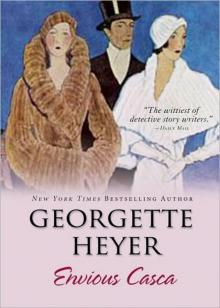 Envious Casca
Envious Casca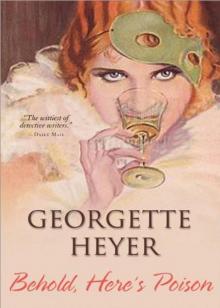 Behold, Here's Poison
Behold, Here's Poison Arabella
Arabella The Nonesuch
The Nonesuch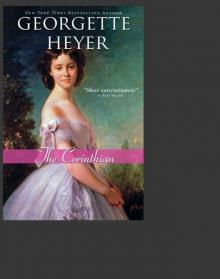 The Corinthian
The Corinthian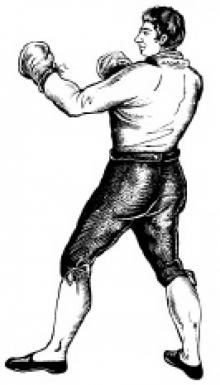 Jennifer Kloester
Jennifer Kloester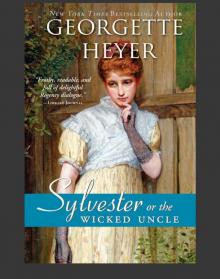 Sylvester
Sylvester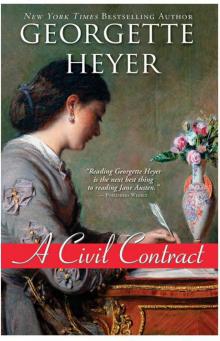 A Civil Contract
A Civil Contract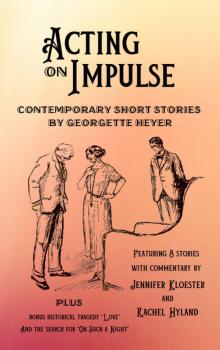 Acting on Impulse
Acting on Impulse Devil’s Cub at-2
Devil’s Cub at-2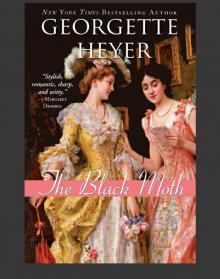 Black Moth
Black Moth Grand Sophy
Grand Sophy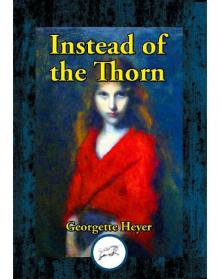 Instead of the Thorn
Instead of the Thorn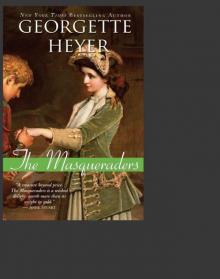 Masqueraders
Masqueraders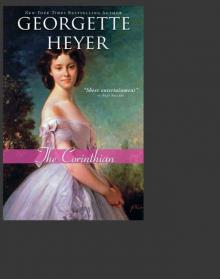 Corinthian
Corinthian Reluctant Widow
Reluctant Widow